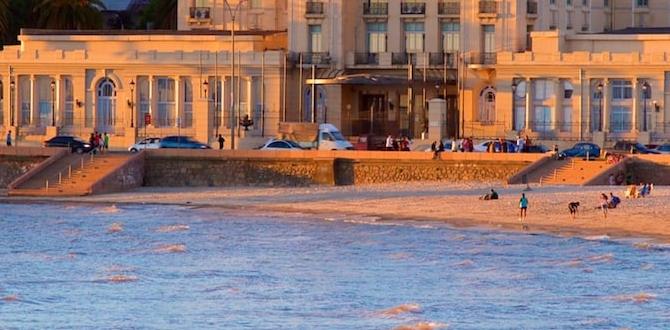Azores Etiquette & Tipping: Essential Guide
Navigating local customs and tipping practices in the Azores is straightforward and contributes to a more enjoyable trip. Generally, Azorean etiquette is relaxed but respectful. Tipping is not as ingrained as in some other European or North American countries, but small gratuities are appreciated for exceptional service. This guide simplifies Azorean etiquette and tipping, ensuring you feel confident and prepared for your island adventure.
Understanding Azorean Culture: Nuances to Know
The Azores, a stunning archipelago in the mid-Atlantic, boasts a culture deeply rooted in Portuguese traditions, blended with a unique island character. Locals are known for their warmth, hospitality, and a generally laid-back approach to life. Understanding a few key aspects of Azorean etiquette will help you connect more authentically with the people and their way of life.
Life in the Azores moves at a gentler pace. This is reflected in daily interactions; rushing is generally frowned upon, and taking time to chat or acknowledge people is common. Eye contact during conversations is important, signifying engagement and honesty. When visiting someone’s home, it’s customary to bring a small gift, such as flowers, chocolates, or a bottle of wine.
Respect for elders is a significant value. Addressing older individuals with a more formal “Senhor” or “Senhora” (Mister or Madam) is a sign of politeness. While casual dress is fine for most tourist activities, it’s advisable to dress a bit more smartly when visiting churches or attending formal events.
Punctuality is appreciated, though not as rigidly enforced as in some Northern European cultures. For social gatherings, arriving a few minutes after the stated time is often acceptable, but for professional meetings or tours, being on time is crucial. Learning a few basic Portuguese phrases, like “Bom dia” (Good morning), “Obrigado/Obrigada” (Thank you – male/female speaker), and “Por favor” (Please), will go a long way in showing respect and enhancing your interactions.
Azores Tipping Culture: A Practical Approach
Tipping in the Azores is a different experience compared to countries where it’s a primary form of income for service workers. In Portugal, and by extension the Azores, good service is expected, and the base price often includes a service charge. However, if you receive service that goes above and beyond your expectations, a tip is a thoughtful way to show your appreciation.
It’s important to remember that tipping is never obligatory, and no one will be offended if you don’t leave a tip. The focus is on polite and respectful interaction, rather than expecting a gratuity. If you choose to tip, doing so discreetly is generally preferred.
Here’s a breakdown of tipping practices for various services:
Restaurants and Cafes
In restaurants, you’ll often find that a service charge is already included in the bill, especially in more tourist-oriented establishments. If you’re satisfied with the service at a casual cafe or a more formal restaurant, you can leave a small tip of around 5% to 10% of the bill. Alternatively, simply rounding up the bill to the nearest euro is a common practice and perfectly acceptable. For exceptional service, a slightly larger tip is a nice gesture.
For instance, if your bill is €23.50, you could leave €25. If it’s €48, rounding up to €50 is a common way to show appreciation. If the service was outstanding, you might consider leaving €50 or even €55.
Hotels
For hotel staff, tipping is less common but appreciated for exceptional service. If a porter helps you with your luggage, a token of €1-€2 per bag is more than enough. For housekeeping, leaving around €5 per day in your room is considered generous for noticeable good service. The tip can be left on the pillow or desk.
Taxis
In taxis, it’s common to round up the fare to the nearest euro or two. If your fare is €9.20, paying €10 is a standard way to tip. For a longer journey or if the driver was particularly helpful (e.g., with luggage), a slightly larger tip is appreciated, but again, not expected.
Tour Guides and Drivers
For private tours or longer excursions with dedicated guides and drivers, tipping can be more applicable, especially if their knowledge, enthusiasm, and service significantly enhanced your experience. For a full-day tour, a tip of €10-€20 per person for the guide can be appropriate. If you have a separate driver, a smaller amount of €5-€10 would suffice. This is more common for private or customized tours rather than large group tours.
Other Services
For services like hair salons or spa treatments, tipping is not customary unless you received truly exceptional service. If you do decide to tip, a similar percentage to restaurants (5-10%) would be suitable.
| Service Type | Recommended Tipping Practice | Notes |
|---|---|---|
| Restaurants & Cafes | 5-10% or round up the bill | For good or exceptional service. Never obligatory. |
| Hotels (Porters) | €1-€2 per bag | For assistance with luggage. |
| Hotels (Housekeeping) | €5 per day | For excellent daily service. |
| Taxis | Round up fare to nearest €1-€2 | Standard practice. |
| Tour Guides (Full Day) | €10-€20 per person | For excellent private tour guidance. |
| Drivers (Full Day) | €5-€10 | For helpful private drivers. |
Social Etiquette in the Azores
Beyond tipping, understanding general social etiquette will make your interactions smoother and more pleasant. The Azorean people are generally proud of their culture and islands, and showing genuine interest is always appreciated.
Greetings
A simple smile and a friendly greeting go a long way. When entering a shop, restaurant, or even a small neighborhood cafe, it’s customary to say “Bom dia” (Good morning), “Boa tarde” (Good afternoon), or “Boa noite” (Good evening) to the staff or other patrons. A wave or nod of acknowledgment is also common. When meeting someone new, a handshake is standard. Close friends and family might hug or kiss on the cheek, but this is not expected of visitors.
Conversation
Azoreans are typically warm and enjoy casual conversation. Topics like family, food, and local life are usually safe and welcoming. While politics and religion can be sensitive in any culture, they are less likely to be contentious topics unless brought up by locals. It’s polite to listen more than you speak, especially when interacting with elders or in more formal settings.
Showing enthusiasm for their islands is always a good idea. Asking about local traditions, festivals, or the best places to eat are great conversation starters. However, avoid making direct comparisons to your home country or criticizing local ways. The Azores have their own unique charm.
Dining Etiquette
When dining, especially in a home setting, wait to be seated. It’s customary to wait for the host to begin eating before you do. Keep your hands visible on the table, but not resting on your lap. If you are offered food or drink, it’s polite to accept, even if you only take a small amount. If you have dietary restrictions or allergies, it’s best to mention them politely before the meal begins.
Sharing food is a common practice, especially when enjoying local delicacies. Clean your plate to show you enjoyed the meal, but leaving a little can sometimes indicate you’re full and satisfied without being wasteful, though this is less of a strict rule than in some cultures.
Visiting Churches and Religious Sites
The Azores are predominantly Catholic, and churches are important places of worship and community. When visiting churches, dress modestly. This means covering your shoulders and knees. Avoid wearing shorts, tank tops, or revealing clothing. Be quiet and respectful inside. Mobile phones should be switched to silent mode. Photography is often permitted, but always check for signs or ask permission, especially during services.
Respecting Nature and the Environment
The natural beauty of the Azores is its greatest asset. Locals have immense pride and respect for their environment. Always stay on marked trails when hiking, never leave any trash behind – pack it in, pack it out. Avoid picking flowers or disturbing wildlife. Many areas are protected, and you can find more information on responsible tourism from environmental organizations and the local government. For example, the Azores Tourism website often has guides on sustainable practices and protected areas.
When out on boat trips or whale watching, follow the guidelines provided by your tour operator. These are usually in place to protect marine life. Maintaining a respectful distance from whales and dolphins is crucial for their well-being.
Things to Avoid: Cultural Missteps to Sidestep
While Azoreans are generally very forgiving, being aware of potential cultural faux pas can help you avoid unintended offense.
- Being overly loud or boisterous: Especially in quieter villages or during mealtimes, maintaining a moderate volume is appreciated.
- Disregarding sacred spaces: Treat churches and religious monuments with respect.
- Being impatient: The relaxed pace of island life means things might take a little longer. Embrace it!
- Taking photos of people without permission: While many are friendly, always ask before taking close-up photos of individuals, especially older people or children.
- Criticizing local customs or food: Authenticity is key. Enjoy the local experience for what it is.
- Not acknowledging basic greetings: A simple “Bom dia” can make a difference.
Practical Tips for Your Trip
To ensure your trip is as comfortable and stress-free as possible, here are a few practical tips:
- Currency: The currency in the Azores is the Euro (€). Credit cards are widely accepted in most tourist areas, hotels, and larger restaurants, but it’s always wise to have some cash for smaller purchases, rural cafes, or local markets.
- Language: The official language is Portuguese. English is widely spoken in tourist areas, hotels, and by tour guides. Learning a few basic Portuguese phrases is always appreciated.
- Transportation: Renting a car is highly recommended for exploring the islands at your own pace. Public transportation is limited outside of the main towns.
- When renting a car, ensure you have the necessary documentation like your driver’s license and potentially an International Driving Permit, depending on your origin. Policies can vary, so check with the rental agency.
- Connectivity: Wi-Fi is common in hotels, cafes, and restaurants. Consider getting a local SIM card if you need constant connectivity, or check your mobile provider’s roaming options.
- What to Pack: The weather can be unpredictable, even in summer. Pack layers, including a waterproof jacket, comfortable walking shoes, and swimwear. Sunscreen and a hat are essential. If you require specific personal care items, such as adult diapers or child diapers for longer outings or travel days, it’s best to bring an ample supply from home, as specific brands or sizes may be difficult to find locally due to limited availability in smaller communities. This ensures your comfort and preparedness for any situation. You can find resources on travel-friendly diaper solutions from reputable sources like Incontinence Product Advisor, which offers insights on selecting the right products for travel.
Frequently Asked Questions (FAQ)
Q1: Is tipping expected in the Azores?
A1: No, tipping is not generally expected in the Azores like in some other countries. Service is usually included, but a small tip for exceptional service is always appreciated.
Q2: How much should I tip at a restaurant in the Azores?
A2: For good or excellent service, you can leave 5-10% of the bill or simply round it up to the nearest euro. It’s a gesture of appreciation, not an obligation.
Q3: Do I need to tip taxi drivers in the Azores?
A3: It’s customary to round up the taxi fare to the nearest euro or two. This is a common practice and a simple way to tip.
Q4: What’s the most important social etiquette to remember in the Azores?
A4: Being polite and respectful is key. Always greet people with a “Bom dia” (or “Boa tarde”/”Boa noite”), show genuine interest in their culture, and be mindful of local customs, especially in churches.
Q5: Are there specific customs I should be aware of when visiting churches?
A5: Yes, dress modestly (cover shoulders and knees), speak quietly, and always check if photography is allowed. Treat these places of worship with reverence.
Q6: Is it okay to wear shorts and flip-flops everywhere?
A6: While shorts and flip-flops are fine for beach or casual outings, it’s recommended to dress a bit more formally when visiting churches, attending formal dinners, or in more upscale restaurants.
Q7: What if I need specific personal care items like adult diapers?
A7: While some products are available, it’s highly recommended to bring your preferred brands and sufficient supply from home to ensure comfort and availability, especially in smaller towns or on remote islands.
Conclusion: Enjoying Your Azorean Adventure with Confidence
The Azores are a destination that rewards visitors with breathtaking landscapes, rich culture, and genuine warmth. By understanding and respecting local etiquette and tipping customs, you not only enhance your own travel experience but also contribute positively to the Azorean way of life. Remember, the people of the Azores are incredibly proud and welcoming, and a little effort to embrace their customs will be greatly appreciated.
Whether you’re savoring a leisurely meal, exploring ancient volcanic craters, or simply enjoying a coffee in a charming village square, approaching interactions with politeness and an open mind will foster genuine connections. Embrace the relaxed pace, enjoy the stunning scenery, and feel confident that you’re navigating your journey with cultural sensitivity and awareness. Your Azorean adventure awaits, filled with incredible memories waiting to be made.





